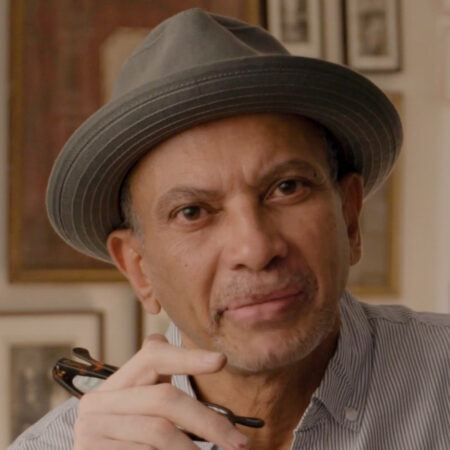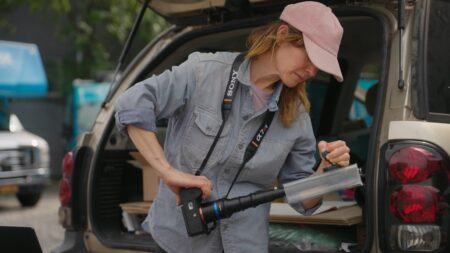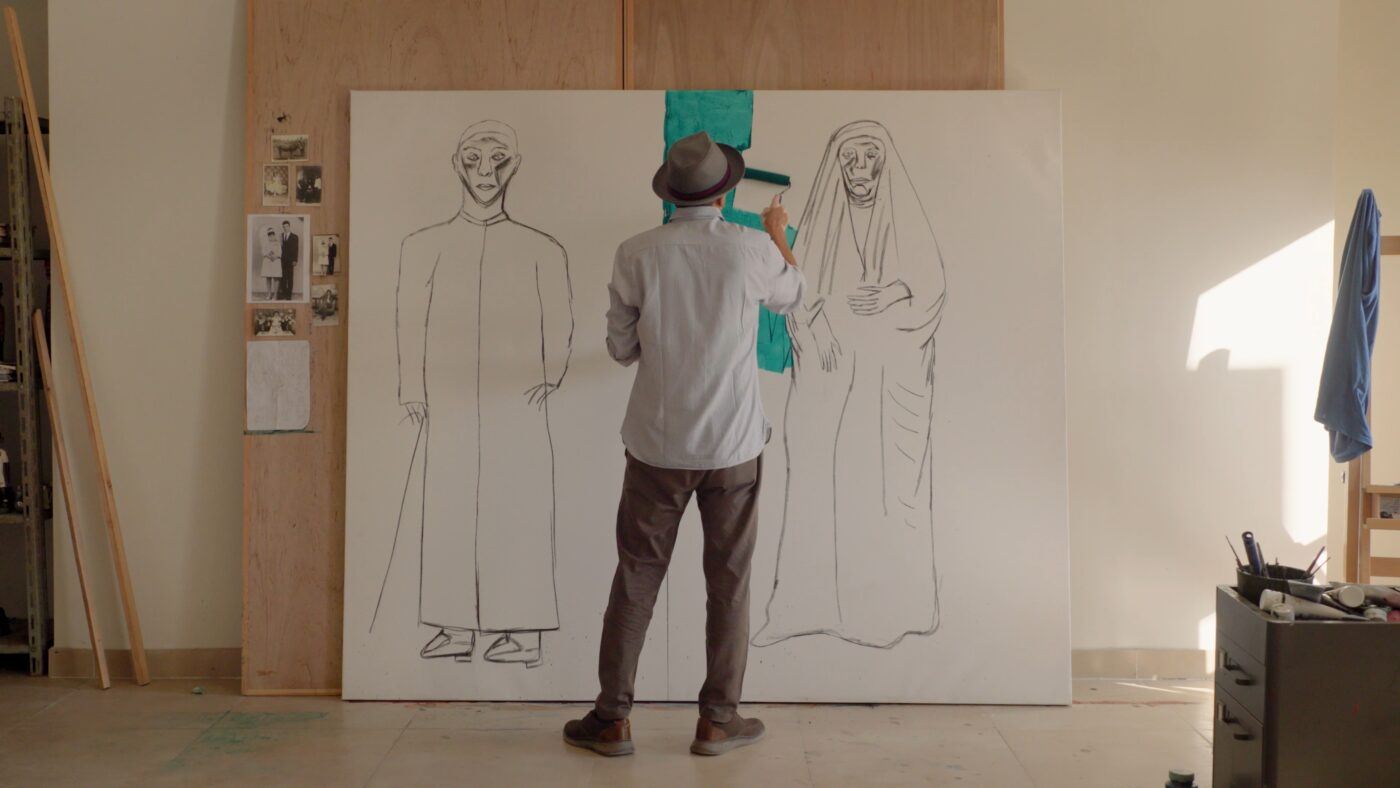Salah Elmur

Salah Elmur was born in 1966 in Khartoum, Sudan, and lives and works in Cairo, Egypt. He received his BA in Graphic Design from the College of Fine and Applied Art at Sudan University, in 1989. Elmur draws inspiration from his vast archive of Sudanese portrait photography to create dreamlike paintings that reflect his memories of Sudan, his cultural heritage, and his own political commentary. Weaving together the documentary and the fantastical, he draws on his personal experiences to explore universal themes such as nostalgia, community, conflict, and censorship.
Inspired by his experiences growing up beside the Blue Nile in Khartoum, much of Elmur’s work is drawn from a mixture of childhood memories and a vast collection of photographs the artist has amassed over the years. “My mind is full of small boxes. Each box has an image,” says the artist. “This image, I capture it from my childhood, from any time of my life: like the river, the sky, the clouds. I just take the soul of these things, I take that emotion.” In his paintings, Elmur uses surreal compositions and color schemes that convey both a sense of longing and nostalgia, as in Black Dog and Water Tank (2022) or Women Swimming in the Sea (2022). Much of the artist’s photography collection comes from his father’s portrait photography studio, where he discovered boxes of defective photographs that could not be sold to clients. The images, with their double exposures and blurred faces, became treasures to Elmur and their influence can be seen throughout his practice in works like Tree and Urn (2022) or Electricity and Water Bill Collector No. 4 (2022).
In addition to sharing his personal nostalgia and yearning, Elmur’s work addresses social and political issues in Sudan, such as the ongoing Sudanese civil war and censorship that has prevented him and his family from returning to their country. In 1990, while working for the Sudanese magazine “Sudanow,” Elmur created a cover image that spoke out against the Muslim Brotherhood. The artwork was censored by the government for its political content, and Elmur was jailed for a week before fleeing the country. This experience led to “The Innocent Prisoners” series, a collection of paintings focusing on victims of censorship and political repression in Sudan. Using a collection of mug shots as his reference, the artist depicts political prisoners with his signature mixture of the real and the imagined as an antidote to the dehumanizing and repetitive aesthetics of the mug shot. Elmur’s artistic practice, ranging from evocative paintings to thought-provoking social commentary, reflects a deep engagement with his cultural heritage and a desire to explore the personal and political complexities of Sudanese life.
Videos 1
-
Salah Elmur
“Ninety percent of my art comes out of Sudan. I remember the dams, the swimmers, the electricity towers, lovers sitting by the river, horses passing. I feel nostalgia for my past.”
Salah Elmur

